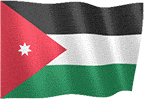
The Hashemite Kingdom of Jordan
 The Hashemite Kingdom of Jordan |
|
Free Zones Free zones in Jordan were established to promote export-oriented industries and transit trade. They are open to foreign and local investors. Investment in the free zones are required to meet certain criteria, such as introducing new technology, using local raw materials and manufactured parts, improving labor skills, and achieving import substitution. Jordan Investment Commission (JIC) (1) Jordan’s Investment Law No. 30 of 2014 merged the Development and Free Zones Commission (DFZC) into the newly formed Jordan Investment Commission (now absorbed by the Ministry of Investment), thus it became the main governmental body responsible for creating, regulating, and monitoring Jordan’s free trade zones, industrial estates, and development zones. Development Zones The development areas aim to distribute the economic development gains and create job opportunities through creating a competitive advantage for each area based on specialization and providing an integrated system of services to investors that support the growth and development of companies. Free zones also promote Jordan's position commercially by facilitating the transit of goods and stimulating economic movement. Projects operating in development areas can be fully owned by non- Jordanians and are subject to a more favorable fiscal and customs regime. There are no export performance requirement, and no local content requirement(2). The development areas are:(3)
Public and Private Free Zones (4) Free zones are outside the jurisdiction of Jordan Customs, and provide duty-free and tax free environment for the storage of goods transiting in Jordan. Goods produced in these zones may be exported, or sold to the domestic market, when normal customs procedures, tariffs, and taxes are applied. The Chamber of Industry issues certificates of origin for exports of goods processed or produced in the free zones, with a local content of at least 40%. Jordan has six public free zones which are predominately commercial free zones serving the transit trade and the local market:
Two of them (Sahab and Al-Karak) are located within industrial estates. Land in public free zones may only be leased. Besides the six public free zones, Jordan has over 37 designated private free zones administered by private companies under the DFZC’s supervision. The free zones are outside of the jurisdiction of Jordan Customs and provide a duty and tax-free environment for the storage of goods transiting Jordan. Real estate in the private free zones can be purchased regardless of the investor's nationality. Jordan launched a solar park in Ma’an development zone and announced plans to establish two new industrial parks in Zarqa and Jerash.(5) Industrial estates / Industrial Parks(6) The government has also created nine industrial estates in Amman, Irbid, Karak, Mafraq, Madaba , Tafileh, Salt, and Aqaba, in addition to several privately-run industrial parks, including al-Mushatta, al-Tajamouat, al-Dulayl, Cyber City, al-Qastal, Jordan Gateway, and al-Hallabat. These estates provide basic infrastructure for a wide variety of manufacturing activities, reducing the cost of utilities and providing cost-effective land and buildings. Investors in the estates continue to receive incentives until their contracts expire, and receive various additional exemptions, such as a two-year exemption on income and social services taxes, complete exemptions from building and land taxes, and exemptions or reductions on most municipalities’ fees. Al Aqaba Special Economic Zone (7) The Aqaba Special Economic Zone (ASEZA) is an independent economic zone not governed by the Investment Commission or the articles in the Investment Law governing investments in free zones or development zones. It offers special tax exemptions, a flat five percent income tax, and facilitates customs handling at Aqaba Port. In recent years, ASEZA has attracted projects, mainly in hotel and property development sectors, valued at over $8 billion. The government continues to implement development projects aimed at attracting commerce and tourism through the Port of Aqaba. The Aqaba New Port project became operational in 2018 and reached design capacity in 2019. The new port, 20 kilometers south of the previous port, added four new terminals and expanded general ship berthing and marine services, in addition to adding dedicated terminals for grain silos, liquefied natural gas, phosphates, and propane. (1) 2022 Investment Climate Statement , Jordan(2) Jordan Trade Policy Review – WTO report- 2015(3) Portal of Invest Jordan.(4) Jordan Trade Policy Review – WTO report- 2015(5) Investment Climate Statement , Jordan , 2022, by the US Department of State(6) Investment Climate Statement , Jordan , 2022, by the US Department of State(7) 2022 Investment Climate Statement , Jordan |